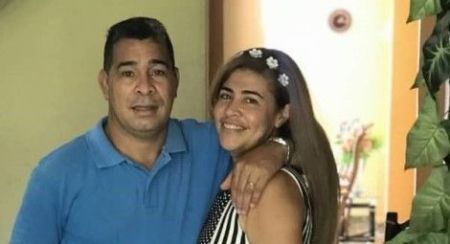Christian group urges public to join campaign demanding Cuba release pastor jailed for protesting regime

A Christian group that works to protect religious freedom worldwide has started a campaign calling on the communist government of Cuba to release a Protestant pastor who has been in jail without trial for participating in the peaceful protests that emerged across the country in July.
State Security officers arrested Pastor Lorenzo Rosales Fajardo on July 11 during peaceful protests in Palma Soriano. Later, they transferred him to the Boniato Maximum Security Prison outside the city of Santiago de Cuba last month, the U.K.-based group Christian Solidarity Worldwide said in a statement announcing its campaign.
Rosales Fajardo, a pastor for 20 years who leads the Monte de Sion church, faces charges including “disrespect” and “public disorder,” punishable with an imprisonment between three and 20 years and has been held incommunicado for most of his detention, the groups adds.
Prison authorities haven’t allowed even his wife, Maridilegnis Carballo, to visit him. He can speak to his family only on a few three-minute phone calls, according to the CSW.
Authorities have warned Carballo that their 17-year-old son, who was arrested with his father but later released, will face repercussions if she continues to speak out about her husband’s plight. “She has also been threatened with imprisonment herself for speaking to international human rights organizations about her husband’s unjust detention,” the group points out.
CSW quoted the pastor’s wife as saying in July: “I went to the place where they say they have my husband detained. No one would let me see him, they haven't even allowed us a phone call … I have run out of strength; how hard it is to pass through the valley of death. But I will not fear anything, I know that [God] is with us.”
In 2012, the government confiscated the pastor’s church property.
The pastor “has now spent over two months in prison in horrible conditions simply for participating in peaceful protests,” CSW’s head of campaigns, Dave Mance, said in the statement.
“CSW continues to call for his immediate and unconditional release, and we urge everyone who cares about justice to stand with us in sending a message to Cuba that the world is watching and that their treatment of Pastor Rosales Fajardo will not be tolerated,” Mance added.
The protests in July were said to be the largest in decades amid ongoing shortages of medicine and food during the pandemic.
Protests were held in cities around the Caribbean island country, including in San Antonio de los Baños, Palma Soriano and Havana.
“It is the most massive popular demonstration to protest the government that we have experienced in Cuba since ‘59,” the year Fidel Castro took power, Cuban activist Carolina Barrero was quoted as telling The New York Times at the time.
Hours after the protests erupted, President Díaz-Canel addressed the nation on national television, urging government supporters to confront the protesters on the streets. He also accused the U.S. of causing the crisis in Cuba by imposing sanctions.
In July, Cuba released two pastors — Yéremi Blanco Ramírez and Yarian Sierra Madrigal — who were arrested during the same protests, Christian Today reported at the time.
The two were detained in a state security facility in the wing of a women’s prison in Matanzas for nearly two weeks. During that time, their families were able to visit them only once to deliver basic hygiene items but had no other contact with them, leaving them to worry about their welfare.
According to the Pew-Templeton Global Religious Futures Project, about 59% of Cubans are Christian. Cuban Christians face constant government surveillance and infiltration even though the church is growing in the island country.
The Cuban government amended its Constitution in 1992, declaring it a secular state, instead of an atheist state, partially allowing religious activities. Since then, the percentage of the country's population that identifies as Christian has grown.
However, the communist regime of Cuba continues to persecute Christians. A new constitution was adopted in 2019, which also lists the country as a secular state.
Cuba has been a one-party state under the Communist Party of Cuba since the late dictator Fidel Castro overthrew the United States-supported dictatorship of Fulgencio Batista in 1959. In 2008, Castro’s brother Raul Castro was elected president, followed by Miguel Díaz-Canel in 2019.





















